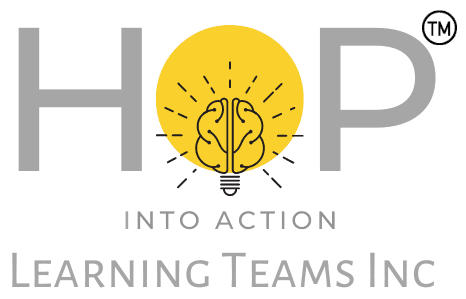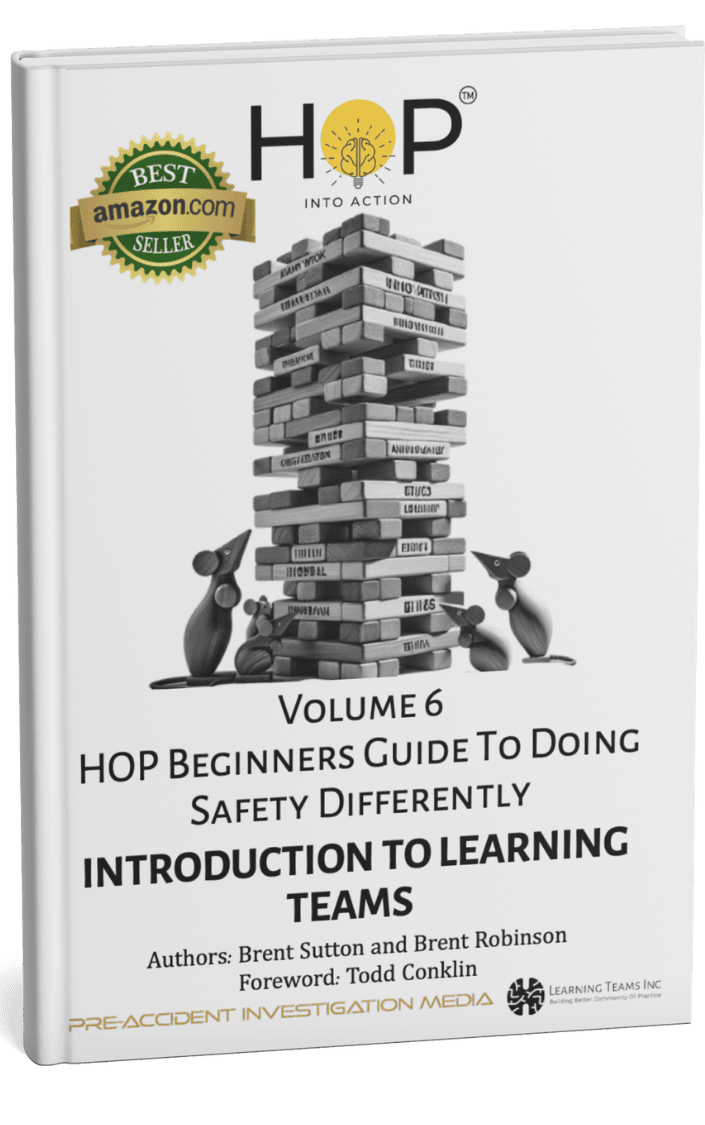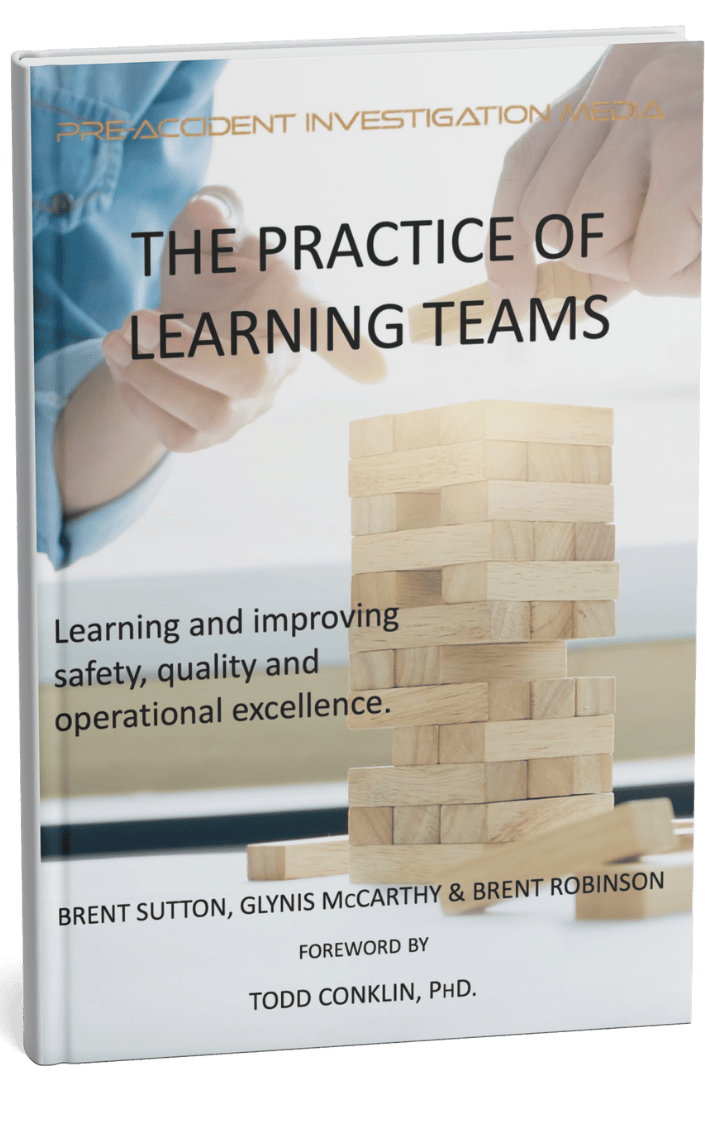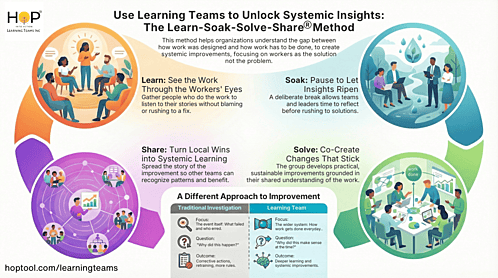
“A Learning Team is not a meeting to decide who was wrong, but a space to understand how work really happens, so we can create BetterWork® for tomorrow.”
Founder of Learning Teams Inc and Author on Learning Teams Brent Sutton

"Learning means taking the time and creating the space for workers to help the organization understand the problem, and then and only then, address the solution."
Creator of Learning Teams Concept Dr Todd Conklin

"Learning Teams help us bring operations back into the heart of improvement, where it has always belonged."
Operational Excellent and Quality Advocate Brent Robinson

What is a Learning Team?
How can Learning Teams be used?


How is a Learning Team run?

Learn: Seeing work through different lenses

Soak: Letting the stories and learning ripen

Solve: Look for change that can be owned and valued by everyone






